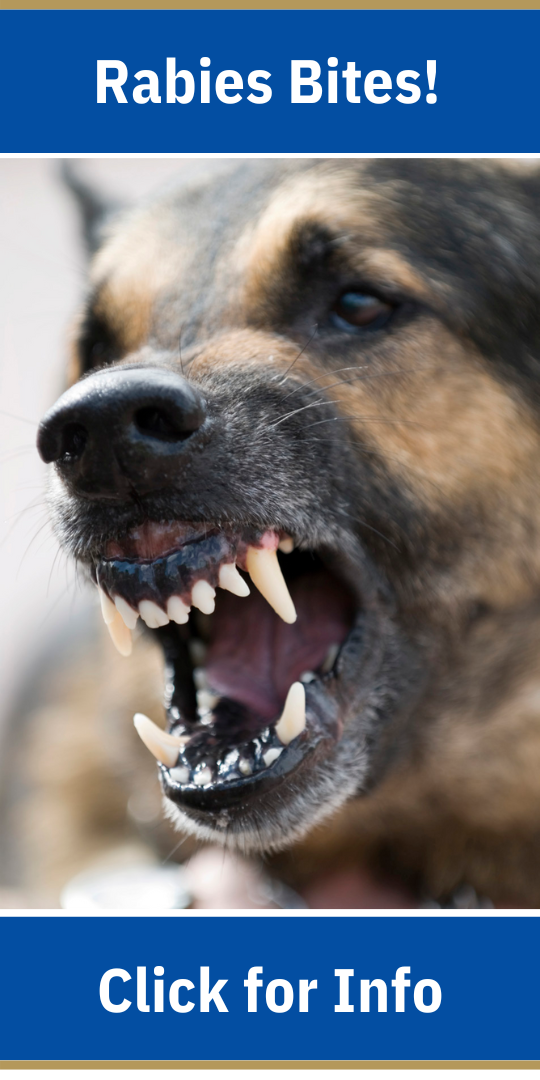Thank you for visiting the DATCP Division of Animal Health website. Here are some of the most frequently asked questions related to animal health:
Animal Bites & Prevention
 Millions of people — most of them children — are bitten by dogs every year in the U.S. The majority of these bites, if not all, are preventable. The American Veterinary Medical Association (AVMA) offers a
variety of resources for anyone who would like to learn more about dog bite statistics and prevention. The Wisconsin Department of Agriculture, Trade and Consumer Protection (DATCP) created a No Bites! coloring book to help teach children how to prevent dog bites.
Millions of people — most of them children — are bitten by dogs every year in the U.S. The majority of these bites, if not all, are preventable. The American Veterinary Medical Association (AVMA) offers a
variety of resources for anyone who would like to learn more about dog bite statistics and prevention. The Wisconsin Department of Agriculture, Trade and Consumer Protection (DATCP) created a No Bites! coloring book to help teach children how to prevent dog bites.
If your dog or cat bit someone, would you know what to do or what to expect? DATCP's Rabies Bites! brochure answers many of your questions and can help you to respond in an emergency.
Learn more about Wisconsin's rabies quarantine requirements.
Canine Brucellosis
Canine brucellosis is a serious disease found in dogs that is spread by a bacterium, Brucella canis. Infected dogs can also spread the disease to people. The disease is often spread between dogs through breeding and by contact with birthing fluids, and urine. However, infected dog’s blood, milk, saliva, and feces are also sources of infection.
Any dog, regardless of its sex, whether it is neutered or sexually intact, and whether it is used for breeding or not, could become infected. There is no vaccine or treatment for canine brucellosis and even dogs that have been spayed or neutered and treated with antibiotics cannot be considered cured. Regardless of the extent of the disease, infected dogs are capable of shedding the organism for years and are a continuous source of infection.
Brucellosis is difficult to diagnose in humans because of non-specific symptoms and doctors’ unfamiliarity with the disease, combined with the lack of good tests available for diagnosing the disease in people. Children and immunosuppressed people are also believed to be at a higher risk for acquiring the disease.
Learn more about canine brucellosis.
Emergency Planning
You never know when a disaster will affect you until it arrives. Make sure your entire family, including your animals, are part of your plan when preparing for disasters or emergency situations.
Centers for Disease Control resources:
— Back to top —
Heartworm
Heartworm is a serious and potentially fatal disease of dogs (and other pets) spread by mosquitoes. It is caused by foot-long worms (heartworms) that live in the heart, lungs and associated blood vessels of affected pets causing severe lung disease, heart failure, organ damage, and even death. Heartworm disease causes lasting damage to the heart, lungs, and arteries, and it can affect the dog’s health and quality of life long after the parasites are gone.
According to the American Heartworm Society (AHS), heartworm disease has become more widespread in the U.S. over the past several decades, due in part to the increased movement of heartworm-positive dogs to regions where heartworm disease was once uncommon. The AHS recommends annual testing of all dogs older than 6 months of age and administration of heartworm preventatives.
Learn about Wisconsin's rules for importing heartworm-positive dogs into the state.
— Back to top —
Humane Officers
Humane officers investigate complaints of animal abuse and neglect for local governments. Find out more about how to become a humane officer in Wisconsin including:
— Back to top —
Pet Care & Safety
DATCP's Division of Animal Health works to protect animal and human health, and to control serious animal diseases, many of which also threaten humans. As part of its mission to protect animals, it offers several resources to help consumers, including:
— Back to top —
Rabies
Help teach children about rabies and how to prevent it with our
rabies prevention coloring book. Bats can be a carrier of rabies, so make sure to read more about how to deal with rabies and bats.
DATCP offers several resources and information about rabies in Wisconsin at our rabies homepage. Make sure to also learn about the state's rabies quarantine requirements.
— Back to top —